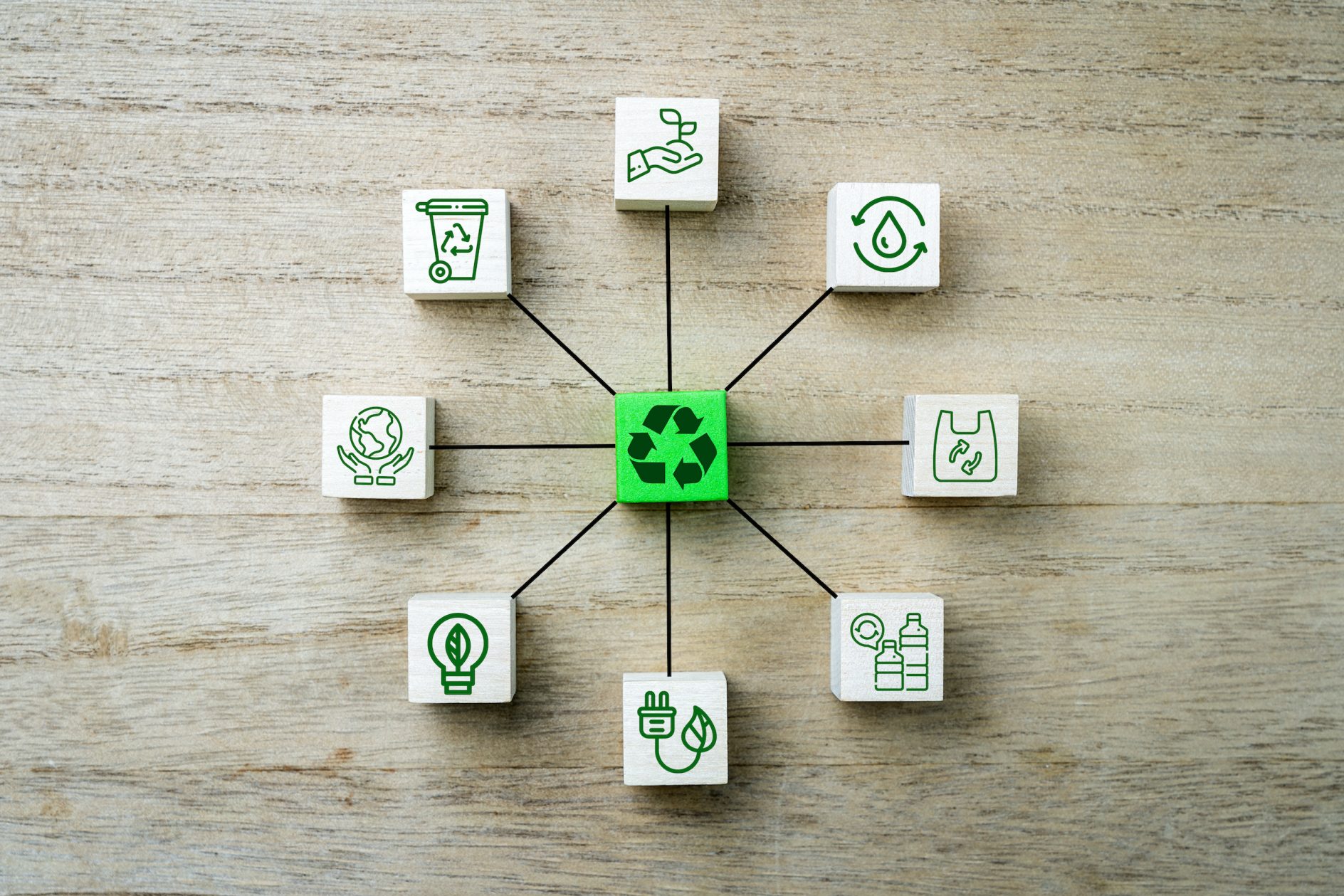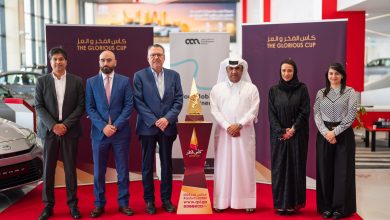Doha Forum Discusses Ways to Create Sustainable Growth in the Gulf
منتدى الدوحة يبحث سبل تحقيق التنمية المستدامة بمنطقة الخليج
QNA
Doha: The panel discussion “Creating Sustainable Growth in the Gulf as the World Transitions to Net Zero”, which was held on the second and last day of Doha Forum 2022, discussed the collaboration of governments and private sector in developing free zones in pursuit of local, regional and global sustainability.
The panel session explored issues related to economic diversification in the GCC. This is in addition to the role that development and economic diversification institutions are playing worldwide in supporting sustainable development by delivering a diverse set of solutions, products and services.
The panel also discussed the importance of the role that governments in the GCC and the world should play in developing and promoting policies related to sustainability, and encouraging the participation of the private sector in this role and its dissemination through the proper responsible institutions. On the other hand, the speakers also discussed ways by which governments and private sector can cooperate and work together to assist free zones in achieving this global and local sustainability, and therefore, contributing to efforts of reaching net zero by 2050.
In his remarks in the panel session, HE Minister of State and Chairman of Qatar Free Zones Authority (QFZA) Ahmad bin Mohammed Al Sayed said: “Our aim is to create diversified economies, through developing the right business partnerships for Qatar and the GCC countries. We intend to do this by facilitating for potential global and local investors to be on board with us and contribute for this purpose”.
“Qatar Free Zones Authority can support the integration of environmental, social and governance (ESG) principles in its approach to attract investors on two different levels; first by businesses to become more sustainable themselves, through enforcing minimum ESG standards for them within the free zones, providing access to supportive technologies and establishing reporting requirements and minimum compliance standards with regards to key areas such as data protection, the health and safety of individuals working in the free zones, and corporate governance. Second, by Qatar Free Zones ensuring that both physical and legal infrastructure are environmentally and socially sustainable,” HE the Minister of State added.
His Excellency noted the pledges made by Qatar, like the rest of the Gulf Cooperation Council, to reduce greenhouse gas emissions, indicating that maintaining a healthy and sustainable environment is one of the four pillars of Qatar National Vision 2030.
In this regard, he highlighted that the State launched in October of Qatar National Environment and Climate Change Strategy, which aims to protect and enhance the Qatari environment by reducing emissions that cause climate change, on order to maintain the quality of life of the Qatari people and ensure long-term economic resilience.
Noting the commitment of the GCC countries to this approach, HE Minister of State and Chairman of Qatar Free Zones Authority (QFZA) Ahmad bin Mohammed Al Sayed pointed to the launch of the Middle East Green Initiative by the Kingdom of Saudi Arabia, which confirms its commitment to international sustainability efforts, and contributes to increasing the regions capabilities to protect the planet by setting an ambitious road map with clear parameters that works to achieve all global goals.
For his part, Founder and CEO of Spark Cognition Amir Husain described the role that emerging technologies are playing in primary sectors; saying: “The rise of robotics and AI will allow productivity to be de-linked from large labor pools in the near future. By leveraging these emerging technologies, Qatar has an immense opportunity to advance its prosperity and competitiveness.”
Steve Glickman, President of International for Aspiration, commented when talking about Aspiration’s partnership with QFZA to create leading fully carbon neutral free zones: “Qatar has exhibited unprecedented global leadership in ensuring all of the electricity and gas consumed in the Free Zones are made carbon neutral through Aspiration’s global reforestation program and nature-based carbon credits portfolio. Every ton of carbon emitted by private tenants in the Qatar Free Zones will be offset by one ton of high-quality, verified carbon credits that correspond with the carbon removal capacity of forests that will be restored in Sub Saharan Africa, an unprecedented and high-integrity commitment to reducing the carbon impact of the Free Zones.”
Chairman of Force for Good and Co-founder of Greater Pacific Capital Ketan Patel talked in his remarks about the role of investing for impact; “Investing for sustainable impact is an imperative because it is the right things to do, morally and commercially, it allows us to drive mass inclusion of the worlds people in education, technology, the work place, healthcare and the financial system and our work shows imaginative and innovative businesses do it well for profit. It is therefore a critical investment to prepare for the transition we need to make to a new digital sustainable era for 2050 and the nearly 10 billion people expected to be living in the world.”
Ying Staton, Head of Corporate Development at Plastic Energy, said during the panel discussion: “Advanced recycling creates an opportunity for end-of-life plastics to be recycled back into the plastic value chain, contributing to a circular economy and reducing dependence on fossil fuels. The energy industry has an important role to play in supporting these new technologies and business models to make the transition to net zero”.
Qatar Free Zones, provide a comprehensive and integrated platform for the Qatari private sector and international companies, which can take advantage of by expanding their businesses and partnerships to enter new markets regionally and globally, and therefore, aim at approaching local and global sustainability.
قنا
الدوحة: ناقشت جلسة /تحقيق التنمية المستدامة بمنطقة الخليج في ظل عالم خال من الكربون/، المنعقدة في إطار فعاليات اليوم الثاني والأخير من /منتدى الدوحة 2022/، أثر تعاون الحكومات والقطاع الخاص في تطوير المناطق الحرة، لتحقيق الاستدامة على المستويات المحلية والإقليمية والعالمية.
وتناولت الجلسة النقاشية، الدور متزايد الأهمية الذي تلعبه المناطق الحرة في دعم التنمية المستدامة بمنطقة دول مجلس التعاون الخليجي وفي أنحاء العالم، في الوقت الذي يسعى فيه المجتمع العالمي للوصول إلى انبعاثات صفرية بحلول عام 2050.
وبحثت الجلسة المواضيع والقضايا المتعلقة بالتنويع الاقتصادي في دول المجلس، بالإضافة إلى الدور الذي تلعبه مؤسسات التنمية والتنوع الاقتصادي في العالم لدعم التنمية المستدامة وذلك عن طريق تقديم مجموعة متنوعة من الحلول والمنتجات والخدمات.
وأشار المتحدثون خلال الجلسة إلى أن تقديم المناطق الحرة مجموعة متنوعة من الحلول للشركات والمؤسسات بما في ذلك جلب المستثمرين الأجانب والتكنولوجيا التي تدعم النمو المستدام وتوفر خدمات متكاملة بدءا من وسائل التنقل المتطورة إلى الأطعمة البديلة، يصب في مصلحة التنويع الاقتصادي.
وتطرقت الجلسة كذلك للدور الذي يجب أن تلعبه الحكومات في دول مجلس التعاون والعالم في تطوير وترويج السياسات المرتبطة بالاستدامة، وتشجيع مشاركة القطاع الخاص في هذا الدور وتعميمه عبر المؤسسات المعنية.
كما ناقش المتحدثون أيضا، تعاون الحكومات والقطاع الخاص وإمكانية العمل معاً لمساعدة المناطق الحرة على تحقيق الاستدامة “عالميا ومحليا”، ومن ثم الإسهام في الجهود الرامية إلى الوصول إلى عالم خال من الكربون بحلول عام 2050.
وقال سعادة السيد أحمد بن محمد السيد وزير الدولة ورئيس مجلس إدارة هيئة المناطق الحرة، في بداية الجلسة، إن دولة قطر ودول مجلس التعاون الخليجي تعمل جميعا على خلق اقتصادات قائمة على التنوع، من خلال تطوير وتشجيع الشراكات المناسبة للشركات والأعمال التجارية فيها وتيسير مشاركة المستثمرين العالميين والمحليين المحتملين ليلعبوا دوراً فعالاً في تحقيق هذا الهدف.
وأضاف أن هيئة المناطق الحرة في قطر يمكن أن تدعم عملية دمج الممارسات البيئية والاجتماعية وحوكمة الشركات في نهجها لجذب المستثمرين على مستويين مختلفين الأول: في أن تصبح الشركات والأعمال التجارية أكثر استدامة، من خلال فرض الحد الأدنى لمعايير هذه الممارسات داخل المناطق الحرة، وتوفير إمكانية الوصول إلى التكنولوجيا الداعمة، بالإضافة إلى وضع حد أدنى لمعايير الامتثال لكل ما يتعلق بالمجالات الرئيسية مثل حماية البيانات، وصحة وسلامة الأفراد العاملين في المناطق الحرة، وحوكمة الشركات.
وأوضح وزير الدولة ورئيس مجلس إدارة هيئة المناطق الحرة، أن المستوى الثاني يكمن في ضمان المناطق الحرة بقطر استدامة البنية التحتية والأسس القانونية لديها بيئيا واجتماعيا.
ونوه سعادة رئيس هيئة المناطق الحرة، بالتعهدات التي أعلنتها قطر كبقية دول مجلس التعاون، بخفض انبعاثات الغازات الدفيئة، مبينا أن المحافظة على بيئة صحية ومستدامة هي واحدة من الركائز الأربع لرؤية قطر الوطنية 2030.
وأشار في هذا الصدد إلى إطلاق الدولة نهاية أكتوبر الماضي، استراتيجية قطر الوطنية للبيئة والتغير المناخي، الهادفة إلى حماية البيئة القطرية وتعزيزها بالحد من الانبعاثات المسببة للتغير المناخي للحفاظ على جودة حياة الشعب القطري وضمان المرونة الاقتصادية على المدى الطويل.
وأشار، في معرض حديثه عن التزام دول المجلس بهذا النهج، إلى إطلاق المملكة العربية السعودية مبادرة الشرق الأوسط الأخضر التي تؤكد التزامها بجهود الاستدامة الدولية، وتسهم في زيادة قدرات المنطقة على حماية كوكب الأرض من خلال وضع خريطة طريق طموحة ذات معالم واضحة تعمل على تحقيق جميع المستهدفات العالمية .
من جهته، أشار السيد أمير حسين المؤسس والرئيس التنفيذي لشركة /Spark Cognition/ إلى الدور الذي تلعبه التكنولوجيات الناشئة في القطاعات الأولية الهامة قائلا إن انتشار الروبوتات والذكاء الاصطناعي المتزايد، سوف يؤدي في المستقبل القريب إلى فك الارتباط بين عملية الإنتاج والعمالة الكبيرة المستخدمة فيها.
ورأى أن دولة قطر لديها فرصة هائلة لتعزيز ازدهارها وقدرتها التنافسية من خلال الاستفادة من هذه التكنولوجيات الناشئة.
أما السيد ستيف جليكمان رئيس الأعمال الدولية في شركة /Aspiration/ فأكد عند حديثه عن الشراكة مع هيئة المناطق الحرة بقطر وتطوير مناطق حرة رائدة ومحايدة للكربون، أن قطر أظهرت ريادة عالمية غير مسبوقة من حيث الجهود المبذولة في أن تصبح كل الطاقة الكهربائية والغاز المستهلكين في المناطق الحرة محايدين للكربون، وذلك من خلال برنامج إعادة التشجير العالمي الذي تنفذه شركة /Aspiration/ والحافظة التي تمتلكها من أرصدة الكربون المستندة إلى الطبيعة.
وقال “سيتم تعويض كل طن من الكربون المنبعث من قبل الشركات العاملة في المناطق الحرة في قطر، بطن واحد من أرصدة الكربون عالية الجودة، والتي تتوافق مع قدرة إزالة الكربون من الغابات التي سيتم إصلاحها في أفريقيا جنوب الصحراء، والذي يعتبر التزاما غير مسبوق وعالي النزاهة للحد من التأثير الكربوني في المناطق الحرة”.
من جانبه، شدد السيد كيتان باتل رئيس مجلس إدارة شركة /Force for Good/ والمؤسس المشارك لشركة /Greater Pacific Capital/، على أن الاستثمار المؤثر المستدام أمر حتمي لأنه هو ما ينبغي القيام به من الناحية الأخلاقية والتجارية.
وأضاف: “إنه يسمح لنا بدفع عملية الاندماج الشامل لسكان العالم في مجالات التعليم والتكنولوجيا وفي مواقع العمل ومؤسسات الرعاية الصحية وفي النظام المالي. وقد أثبتت الشركات والأعمال التجارية الخلاقة والإبداعية بأنها تقوم بهذا الدور بشكل جيد من أجل الربح. لذلك فإنه يعتبر استثمارا هاما وضروريا يجب أن نقوم به للتحضير لعملية الانتقال إلى عصر رقمي مستدام وجديد في عام 2050 وما يقرب من 10 مليارات شخص من المتوقع أن يعيشوا في العالم في ذاك الوقت”.
من جهتها، ذكرت السيدة يينج ستاتون رئيسة التطوير المؤسسي في شركة /Plastic Energy/ أن عملية إعادة التدوير المتقدم توفر فرصة لإعادة تدوير البلاستيك الذي انتهى عمره الافتراضي، ليدخل في سلسلة القيمة البلاستيكية، وهو ما يساهم في خلق اقتصاد دائري ويحد من الاعتماد على الوقود الأحفوري.
وأكدت أن “لقطاع الطاقة دورا هاما يجب أن يؤديه في دعم هذه التكنولوجيات ونماذج الأعمال الجديدة للانتقال نحو الانبعاثات الصفرية”.
يذكر أن دول مجلس التعاون لدول الخليج العربية، تعمل على تنويع اقتصاداتها كجزء من الجهود طويلة المدى الهادفة لتقليل اعتمادها على عائدات النفط والغاز، بالإضافة إلى زيادة الإنتاجية والنمو المستدام للأجيال القادمة.
وتوفر هيئة المناطق الحرة بقطر، منصة شاملة ومتكاملة للقطاع الخاص القطري والشركات العالمية، يمكن الاستفادة منها في توسيع أعمالهم وشراكاتهم للدخول إلى أسواق جديدة إقليمية وعالمية، وبالتالي السعي إلى تحقيق الاستدامة المحلية والعالمية.




